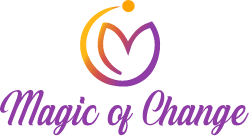- Have any questions?
- 8891894588

An allergy is a reaction of your immune system to a substance that was not necessarily dangerous but that your body, at some point in time, thought they were. Allergies are traditionally treated with antihistamines which are relatively effective but can be very uncomfortable too. This is where NLP kicks in.
NLP combines three influential factors that influence human experiences:
- The neurological system
- The language system and
- Our programming
With the right implementation of NLP, we can learn how to change limiting beliefs and attitudes to restore health and maintain happiness. It is also known for modifying behaviours through anchoring a positive state in the prominent V-A-K or Visual-Auditory-Kinesthetic senses. It is a method that helps to recode how a person’s T-cells flag an allergen in their immune system. After the NLP allergy process, allergens that are marked harmful by the immune system are treated as they should be and eventually will not be flagged anymore.
The premise of NLP indicates that allergic reactions are directly impacted by the mind and several psychological factors. It works by questioning these factors and teaches a person how to practice control over his or her body’s response to allergies. Studies have found that chronic allergy-related diseases like asthma, rhinitis, and eczema can be triggered by strong emotions, stress or anxiety. The techniques in NLP will practically retrain the immune system of an allergy-prone person to react less to allergens. It also aims to treat an allergy by re-informing the immune system to passively react instead of acting harshly on allergens or any other foreign substances using techniques of psychological reframing.
Allergens in the human body usually develop in times of great bodily changes such as puberty, marriage, poor health and even parenthood. These changes can impact us both as internally and externally at a cellular level. NLP will help an individual identify how and when an allergy developed and re-educate the body on how it can act differently. It trains the imagination and the body to deal with the allergen at a crucial time of change or development, giving it a new point of reference for anticipated encounters with allergens.






